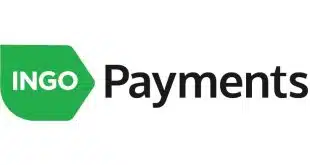Reflecting trends seen by its larger network competitors, Discover Financial Services on Monday reported modest growth in credit card volumes and bigger growth in debit. Discover, in releasing earnings for its third fiscal 2010 quarter ended Aug. 31, also said that its 4-year-old effort to recruit merchant acquirers to sign small merchants for Discover card acceptance is largely complete.
The last of the top 100 U.S. bank card acquirers are now offering Discover, according to chairman and chief executive David W. Nelms. Discover first rolled out its strategy to enlist acquirers to offer Discover in addition to Visa and MasterCard in a deal with processor First Data Corp. (Digital Transactions News, July 14, 2006). That strategy enables merchants to get consolidated statements and call just one number for customer service rather than having to use separate procedures for Discover.
Nelms estimates that the top 100 acquirers account for 97% of U.S. credit card volume. “As we continue to implement our acquirer relationships over the coming quarters, we expect our U.S. small-merchant acceptance to move closer towards parity with Visa and MasterCard, which would continue to give us a growth tailwind versus bank card issuers,” he told analysts in a conference call. Visa and MasterCard have about 7 million U.S. merchant locations.
The business coming from the acquirer-signed merchants contributed to a 7% rise in credit card transactions processed on Discover’s network—418.4 million versus 390.6 million in fiscal 2009’s third quarter. The Discover-owned Pulse electronic funds transfer network, recovering from the loss of a major customer last year, processed 882.2 million transactions in the third quarter, up 17% from 753.2 million a year earlier.
Third-quarter dollar volume on Discover’s proprietary network grew 6% to $24.9 billion from $23.6 billion in the same prior-year period. Volume from banks issuing Discover-branded cards grew 24% to $1.79 billion versus $1.45 billion, but volume on the Discover-owned Diners Club International travel-and-entertainment card system grew only 1% to $6.54 billion. Pulse saw volume grow 9% to $30.6 billion from $28.1 billion in fiscal 2009’s third quarter. In all, what Discover calls Payment Services volume—Pulse, Diners Club and the third-party issuers—grew 8% to $38.9 billion compared with just under $36 billion a year earlier. Nelms said more than 100 financial institutions have signed on as third-party issuers in the past year. Total proprietary and Payment Services volume added up to $63.8 billion, up 7% from $59.5 billion.
Asked by an analyst if Pulse might benefit from the new Dodd-Frank financial-reform law’s proscriptions about debit card transaction routing, Nelms expressed optimism but said he won’t know until the Federal Reserve comes out with its regulations implementing the law, which aren’t expected until next year. The controversial law’s so-called Durbin Amendment, with many and frequently vague mandates, bans issuers from having only so-called affiliated network logos on debit cards, such as Visa Inc.’s for signature debit and the Visa-owned Interlink bug for PIN-debit point-of-sale transactions. Cards will be required to have at least two unaffiliated networks, which would give merchants more transaction-routing choices. Analysts expect that provision to benefit networks such as Pulse at the expense of Visa, which has many exclusive issuing deals with banks. “What we are hopeful about is that the network-routing rules and the network- exclusivity rules will be formulated in a way that will enhance network competition in the business,” Nelms said. He cautioned that “lots is open to interpretation” as the Fed fashions its rules. “If it produces a greater amount of network competition … we think that would be good for us.”
Discover posted net income of $261 million in the third quarter, off 55% from $577 million a year earlier because last year’s results included $287 million Visa and MasterCard Inc. paid to settle antitrust claims from Discover (Digital Transactions News, Oct. 28, 2008). Pre-tax income in the Payment Services segment increased 36% to $36.8 million.
Discover on Sept. 17 revealed plans to buy $4.2 billion of private student loans and the ongoing business of Student Loan Corp. (SLC) from Citigroup Inc. for $30 million. The acquisition would make Discover the third-largest provider of private student loans, a sector Nelms said is growing faster than credit cards, at low risk. Most of SLC’s loans are insured and have co-signers. “It diversifies Discover’s loan portfolio and adds scale and distribution in private student loans through a proven operating platform,” he said.







